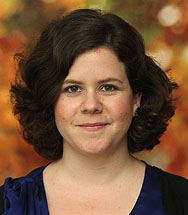The ICS will investigate the expression of denial and disagreement in human interaction with a financial aid from the Ministry of Science.
The project seeks to detect verbal and nonverbal patterns that are used consistently in English, Spanish and German, through instructions of data audio-visuals and spontaneous conversations recorded in laboratory

The Institute for Culture and Society (ICS) of the University of Navarra is leading a new project that will investigate the expression of denial and disagreement in human interaction. The initiative will receive funding from the Ministry of Science, Innovation and Universities, through the State Program of Generation of knowledge and Scientific and Technological Strengthening of the System of research and development+i.
Inés Olza, researcher at project 'Public discourse' of the ICS, is in charge of project, called MultiNeg. She is joined by Carmela Pérez Salazar, from the School de Philosophy y Letras of the University of Navarra; Elvira Manero, from the University of Murcia; Laura Amigot, from the European University of Madrid; Anais Holgado Lage, from the University of Princeton (USA); Renia López Ozieblo, from the Polytechnic University of Hong Kong; Malin Roitman, from the University of Stockholm (Sweden); and Biagio Ursi (ENS of Lyon); and Biagio Ursi (ENS of Lyon). Renia López Ozieblo, Hong Kong Polytechnic University; Malin Roitman, Stockholm University (Sweden); and Biagio Ursi(ENS de Lyon; University of Nancy, France).
From agreement with Inés Olza, the study of disagreement "is a central topic of research to understand how conversational exchanges work and the way in which the speaker and his interlocutors negotiate meaning and modulate their attitudes in interaction". He adds that his aim is "todetect verbal and - more novelly - nonverbalpatterns that are consistently used in the expression of disagreement in English, Spanish and German".
data of authentic and contextualized speechTo do this, MultiNeg will use two types of authentic and contextualized speechdata . On the one hand, macro-analyses will be made of trends observed in various instructions of large audio-visual data , in order to "make generalizations with quantitative and statistical relevance". On the other hand, microanalyses of a corpus of recordings of spontaneous conversations carried out in a linguistic laboratory will be developed.
The integrated model for the study of disagreement that the project will empirically validate will be applicable to the study of any other language, and will have relevant implications in several disciplines for which the management of agreement and dissent is central, as detailed by the research team.
"MultiNeg will offer tools for advisory service and development in professional mediation (labor, family, institutional), in the management of reputation and in crisis communication in institutions of different subject, as these areas increasingly require the participation of experts in communication and management of conflicts", says Inés Olza.
MultiNeg has obtained a total of 30,250 euros for four years from subsidy . It plans to publish scientific articles in high impact journals, as well as a monograph; to organize two workshops with prestigious international experts; and to carry out actions at knowledge dissemination.





